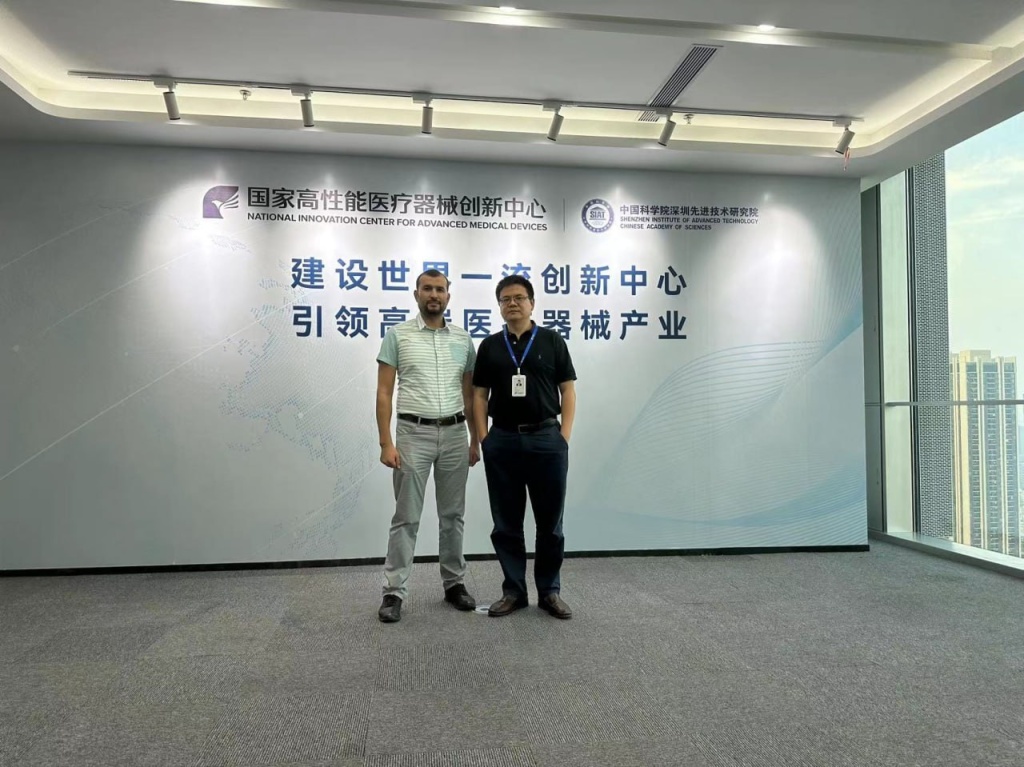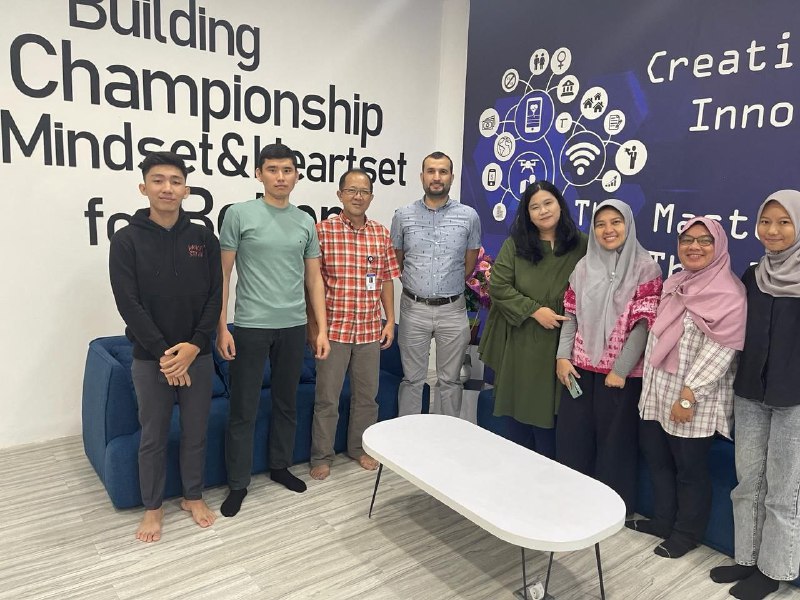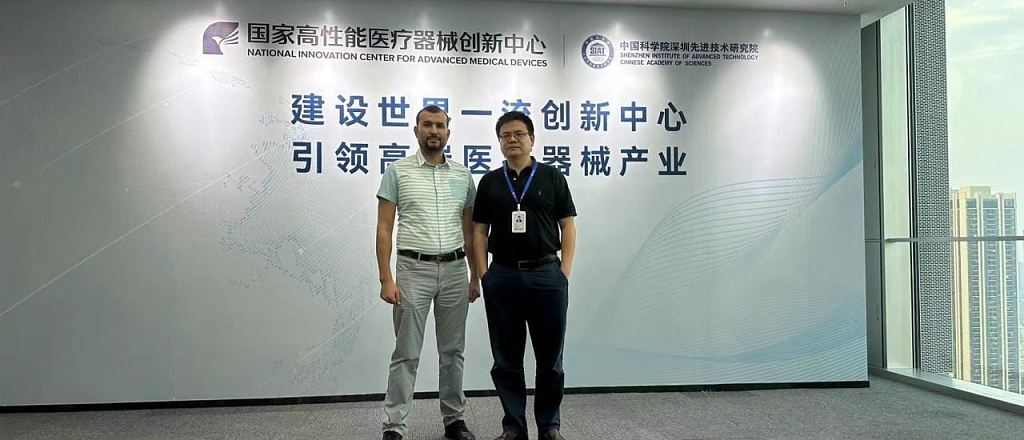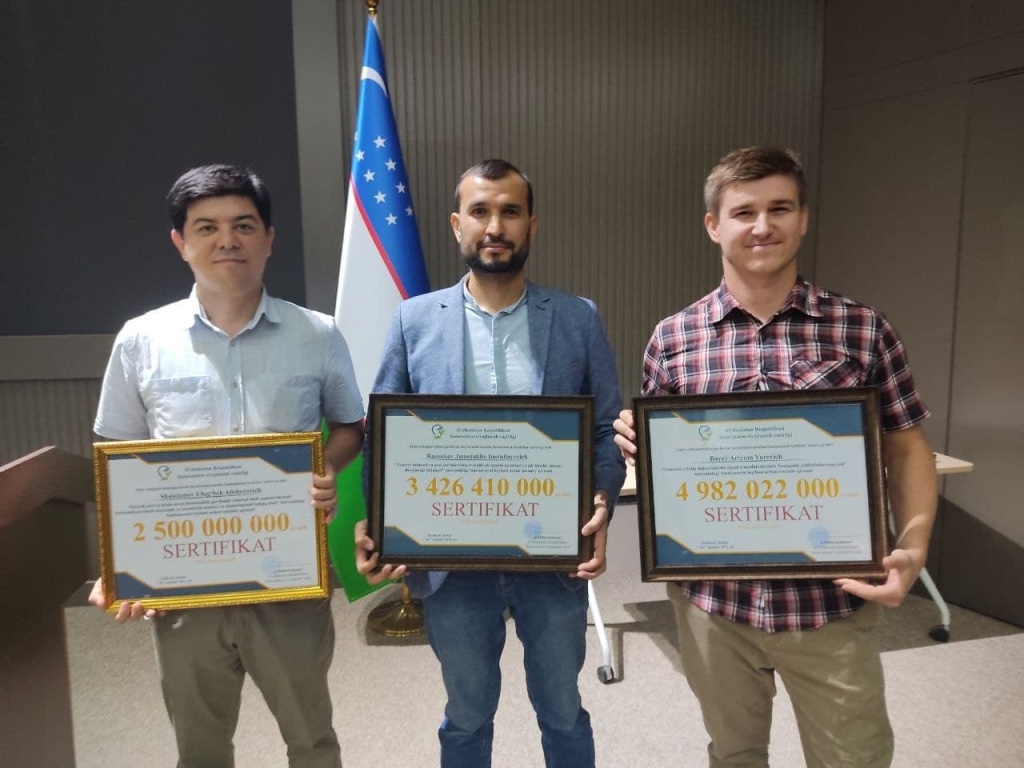Meet an employee of a research university in Uzbekistan and find out how a scientist's job works and what students who want to pursue science should do.
Jamoliddin Razzokov, 37, city — Tashkent Head of Lab, facebook
About myself
I became interested in science when I was still at school. I wondered why objects moved or why we need force to move things. As time went on, the questions became more complex: I became interested in how cars worked and other technologies — all involving physics, engineering, and chemistry. By seventh grade, I was determined to pursue science. To this end, I enrolled at the National University of Uzbekistan in the Physics Department, earning a bachelor's degree and then a master's degree.
I started my career as a junior employee at the Institute of Ion Plasma and Laser Technologies. A few years later, I interned at the Technical University of Eindhoven. Here I moved into a new field - the study of short peptides. This is a branch of biophysics, so it was difficult for me at the first stages. But thanks to my professor, Paul van der Scott, I got to grips with and became interested in this field.
About research
After my internship, I returned to Uzbekistan. However, the necessary equipment to conduct research was not available here, so I travelled abroad again. In 2015, I got a postgraduate position at the University of Antwerp in Belgium.
I have been researching the effects of plasma on cancer cells. Plasma is the fourth state of matter, a highly ionised gas containing radicals and molecules. So, for example, thermal plasma is the Sun or fire. But non-thermal plasma is also found in nature: it can be produced by applying a high voltage between electrodes at room temperature. In simple words: plasma is a cold flame. It can oxidise material but does not cause thermal effects. Therefore, cold atmospheric plasma is a biocompatible technology.

Scientists are working on a method of treating cancer using cold atmospheric plasma. After using such technology, cancer cells are destroyed at the molecular level. However, we have not yet studied all the details sufficiently. We need to do more computer simulations to better understand the molecular mechanisms of action of the plasma.
After completing my PhD, I stayed at the University of Antwerp as a postdoc. After a year and due to the pandemic, my project did not receive funding. Then I received invitations from George Washington University and Indiana State University, but because of the lockdown I also did not get a visa. So I came back to Uzbekistan.
Currently, I am the principal investigator on several projects. One of them is studying the effect of cold atmospheric plasma on plant seeds. After the treatment, the number of germinated seeds and the speed of their development increases. It is a completely ecological technology, cheaper than any chemical preparations. This year we experimented with wheat. We expect a 5-10% increase in yields in the fields.
We are working on another study in cooperation with colleagues from the National Innovation Centre for Advanced Medical Devices of China and the Chinese Academy of Sciences. They are conducting experiments on cancer cells, while we are doing computer simulations and studying the immunotherapy method. The project will run for two years, and if all goes well, we will use the results to treat cancer.
About being a scientist
As a lab manager, I employ students to work on my projects. At the moment I have 12 employees, three of whom are doctoral students. Every day in the office we start with a discussion of ideas. I always give an assignment to read recently published research and articles. This is important to stay up to date with what's going on in the industry. Next, students receive assignments from me: some create computer simulations, others study the cell membrane or the effects of an oxidizing environment on different types of proteins.
Every fortnight I hold group meetings during which everyone shares their results. After the discussion, we make plans for the next fortnight. This makes the students realize the importance of their work, which encourages them to study even harder. And it has its results. One of my doctoral students is conducting experiments with Indonesian scientists at Bogor University in Jakarta. Another has received a grant from the Innovation Fund of the University of San Wuyi, Malaysia. Such international cooperation allows us to do cutting-edge science in a competitive environment.
About science in Uzbekistan
Like other developing countries, Uzbekistan has problems with science. The country does not have such a high level of investment in scientific research. For example, to buy equipment, you have to first provide evidence that you need it and then wait five or six months, sometimes years. The terms and conditions of projects spell out the rules: 40 per cent of the funding must be used to buy equipment, and the other 60 per cent must be used for staff salaries. But sometimes the most expensive thing in research is the equipment, and it is difficult to stick to this distribution of funds.

The experience of developed countries shows that it is an investment in science that has helped them become cutting-edge. For example, if our plasma seed treatment project is successful, the Ministry of Agriculture will be able to apply it to the whole country and save millions.
Gradually, my team and I are adapting to the challenges. Step by step we work on projects to eventually come up with our solutions to different problems.
Tips for young scientists
There are many intelligent and talented students studying at universities in Uzbekistan. It is necessary to show them that working in science is promising. With my help, students go abroad and participate in international scientific forums. In this way, we can nurture a new generation of scientists that the country needs.
I advise students who want to do science to learn English. If you know only Uzbek, your research will be localized. With English, however, you can go global, communicate with scientists from other countries, and use English-language sources.
Choose a good supervisor who will tell and show you the whole scientific process in detail. This is important if you want to build your career and become an independent scientist.





